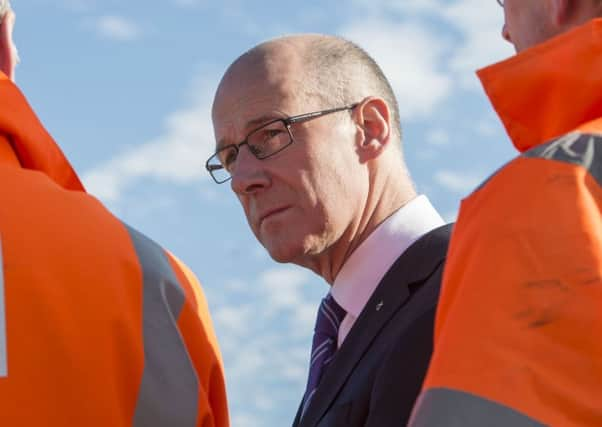City companies could face 25% tax hikes after 2017 revaluation


The warning from consultancy JLL comes just days after Scottish Finance Minister John Swinney promised to review business rates following repeated calls from business groups to create a fairer system.
The rates are to be revised in 2017, based on how rents stood in 2015. The current framework, introduced in 2010, is based on 2008 rental levels when rents were at high levels after several years of sustained commercial growth. Given that average rental values have struggled since the start of the 2008 recession, the UK government has altered the formula by which rates are calculated.
Advertisement
Hide AdAdvertisement
Hide AdIn a report, 2017 A Brave New World? JLL predicts that the uniform business rate (UBR), the figure multiplied by rental value to calculate tax owed, will rise to 53.3p in the pound across the UK for most prime properties.
Currently the rate poundage in Scotland for 2015-16 is 49.3p in the pound for large businesses and 48p in the pound for smaller organisations.
Whilst JLL said the new formula may result in little change to tax liabilities for many businesses throughout Scotland, those based in Scotland’s three biggest cities are likely to see tax liabilities increase following the revaluation in 2017.
Due to average rental values in Aberdeen, Edinburgh and Glasgow increasing between 2008 and 2015, JLL predicts that tax liabilities could increase by 25 per cent in Aberdeen, 15 per cent in Edinburgh and 10 per cent in Glasgow.
It is likely that ratepayers of older properties in Glasgow will see a decrease in liability, while prime sectors are likely to see an increase of about 5-10 per cent.
JLL said prime office rental values in Edinburgh have increased since 2008 and may see growth of around 10 to 15 per cent in rate liability.
The consultancy is now calling for radical changes to the business rates system, including the use of the consumer price index (CPI) rather than retail price index (RPI) as a measure, more frequent revaluations, and a modernisation of the collection process.
David Burke, director of rating at JLL, said: “The fundamental problem with the current rating system is that it’s based on a snapshot in time, and fails to take into account changing economic dynamics.
Advertisement
Hide AdAdvertisement
Hide Ad“We believe that there needs to be a radical overhaul of the ratings system, making a number of changes which will result in a more balanced formula which more accurately reflects property values and rents at any given time.
“The Scottish Government’s pledge to review the rating system is a welcome step in the right direction.
“However, we now need to see some concerted action resulting in fundamental changes to Scotland’s business rates regime.
“The answer is not to remove the exemption on industrial properties nor halve the exemption on other commercial properties.
“There is a near-chronic lack of supply in prime locations so companies are not going to have anywhere to grow into and these proposals will stifle any development, hurting economic growth.”
Business leaders welcomed last week’s announcement of a review of the system in Scotland.
David Lonsdale, director of the Scottish Retail Consortium, said that it “heralds a great opportunity to recast business rates for the decades ahead”.